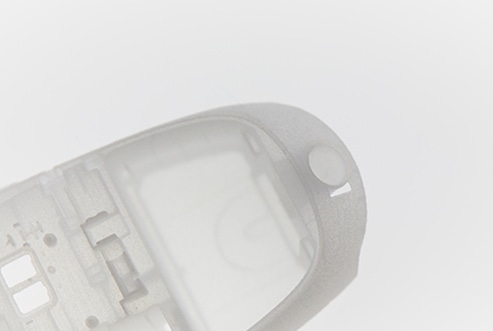Polymer-based FDR technology for superfine surfaces and extremely delicate components will pave the way for new series production applications
 The polymer-based FDR technology for superfine surfaces and extremely delicate components (Source: EOS)
The polymer-based FDR technology for superfine surfaces and extremely delicate components (Source: EOS)
EOS, the world's leading technology supplier in the field of industrial 3D printing of metals and polymers, is showcasing its Fine Detail Resolution (FDR) technology for processing polymers for the first time at the formnext trade show in Frankfurt (November 19-22, 2019, hall 11.1, stand D31). EOS is therefore the first manufacturer to develop a solution for powder-based industrial 3D printing using a CO laser. This will make it possible to produce extremely delicate yet robust parts with fine detail resolution surfaces and minimum wall thicknesses of only 0.22 mm. It will open up new applications for series production and offer an even broader variety to the industry when it comes to choosing the right 3D printing technology from EOS for processing polymers.
FDR technology for surfaces with fine detail resolution
FDR is a highly suitable solution wherever delicate structures, surfaces with a fine detail resolution and thin wall thicknesses are the foremost requirements. Unlike the existing EOS product range, a 50-watt CO laser is being used for this. This laser type creates an ultra-fine laser beam with a focus diameter that is only half the size of current SLS technologies. This enables completely new exposure parameters resulting in parts that have superfine surfaces. Initially, the certified material PA 1101 is used. It is processed in layer thicknesses of 40 and 60 ľm and features both high impact resistance and elongation at break. Moreover, it is made from renewable raw materials.
Dr. Tim Ruttermann, Senior Vice President Polymer Division says: "The new technology will combine the best of two worlds - the detailed resolution of stereo lithography (SLA) with the durability and quality of selective laser sintering (SLS)." He continues: "In future, depending on application requirements, customers will therefore be able to choose between the existing EOS P 500 version with a CO2 laser for high productivity and material flexibility; or the CO laser-based FDR technology for manufacturing extremely delicate components; or, if the focus is on maximum productivity with dedicated application material, they can decide for the upcoming EOS LaserProFusion technology concept that was showcased for the first time at the formnext 2018."